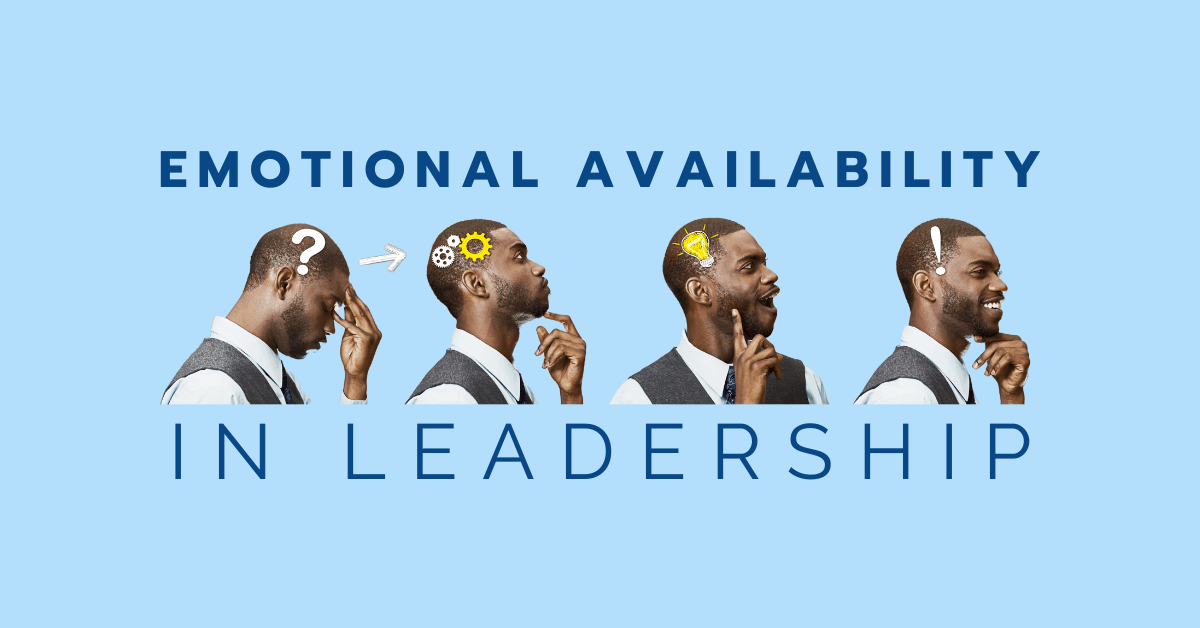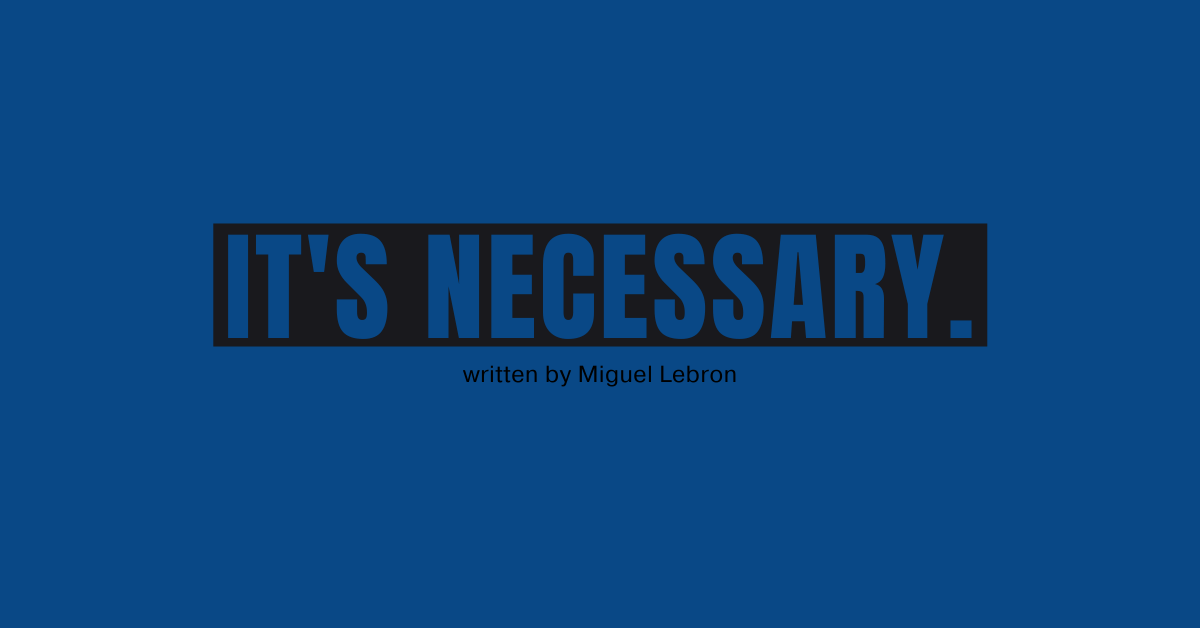Emotional Availability In Leadership

The future leader is going to have to be more emotionally available. By this, they will have to be willing to have more difficult conversations and ask more complex questions.
An emotionally available leader is willing to sit with their team members to admit they may not have the answers right now. To recognize you do not have the answers to the complex question right now does not mean you will walk away from the table. Instead, it means that you are willing to do the work to better understand what you may have overlooked.
Emotionally available leaders are consistent and reliable. They do not walk away when the going gets tough and don't shy away from challenges. The emotionally available leader is willing to be vulnerable, willing to show their flaws, ready to embrace the scares and share the stories that come along with them.
Gone are the days of being a guru on a mountain top and not accessible to the people you influence. The next generation of leaders, the next wave of leaders, will have to be much more emotionally vulnerable. In the coming years, the emotionally vulnerable leader will be the one that wins.
Self-reflection is necessary for someone who wants to be emotionally vulnerable. You must self-reflect – admit to yourself what you are insecure about and what you are afraid of, and make a list of everything you have avoided. Your list must consist of those tasks, conversations, or people you have avoided as a defense mechanism from the emotions it generates. This does not have to be a literal list. Still, you must definitely be will to acknowledge these areas and feelings.
Emotionally unavailable people build walls, and emotionally unavailable leaders close the door to their office and jam-pack their schedules so that no one can reach them. This may be a subconscious or conscious action. Still, they build walls and create barriers that keep people away and prevent intimate connection. This unavailability hurts the team as everyone else follows suit, and emotions are ignored. The unwillingness to address their own unavailability leads to the avoidance of others' availability.
Honest conversations geared towards growth, even if it means asking complex questions, is what is required.
Sometimes leaders don't want to "rock the boat" or challenge individuals who have fallen into a routine or a rut. They do this to avoid feeling bad. "If we can avoid the conversation, we can prevent any feeling this may stir up in someone else or in me," - says the emotionally unavailable leader. However, avoidance is not a resolution nor a bandaid, just a blindfold obstructing our vision from the storm this can cause.
Another tool that can help you become much more emotionally available is meditation. I am not talking about rolling a mat on the ground somewhere and humming all day unless that's your jam! I refer to asking yourself some tough questions and sitting at that moment for 3-5 minutes.
Questions to consider:
How do I Feel Right Now?
How would I feel if I lost everything I have?
How would I feel if I lost everyone I love?
These are the questions that I use when meditating. The things that are important to me and the values I hold in my life may be different for you, but these questions force me to stop and really think about what's important. The moments I meditate on these questions, I can't help but think of how great God has been with me and how many blessings he has entrusted me with. The Bible teaches us the need for meditation. We see this explicitly at the moment Joshua is being called to lead in Joshua 1:8-10.
An emotionally available leader is not intimidated by the success of others. They are not on the defensive and can pick up on the emotional state of others. Don't forget, those within your team are human beings. They are mothers, wives, sisters, brothers, husbands, friends, and so much more. Be available to those reporting to you and check your ego at the door cause you are not the only one going through difficult times. Still, your willingness to connect with others about what it looks like to push despite the adversities - will increase morals, increase vulnerability, increase communication and increase your influence as a leader.
Remember, influence requires relationships.













